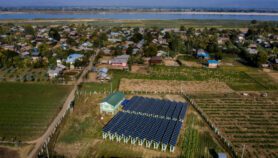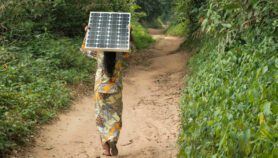Send to a friend
The details you provide on this page will not be used to send unsolicited email, and will not be sold to a 3rd party. See privacy policy.
Ethanol and biodiesel offer poor countries hope of economic growth, but only if international markets are freed from agricultural subsidies and other protectionist barriers, writes Luiz Inácio Lula da Silva in this Guardian Unlimited article.
The Brazilian president asserts that nations should not equally share the burden of reducing climate change — poor countries cannot be expected to offset the impacts of their richer counterparts.
He cites Brazil’s success in promoting renewable energy — which now makes up 45 per cent of the country’s energy matrix compared to the global average of 14 per cent — as an example of taking responsibility.
This has been achieved in a sustainable way that can be mirrored by other developing countries, he argues. Brazil uses sugarcane to produce ethanol — a crop that Lula says does not damage national rainforests as it grows poorly in Amazonian soil.
The ethanol and biodiesel industries in Brazil, he writes, also generate a large number of jobs and income.
The technology can be exported to help other developing countries alleviate poverty and protect the environment. But, says Lula, this can only happen if rich countries open up their markets to poorer countries and remove bureaucratic barriers to biofuel imports.













